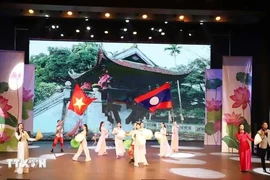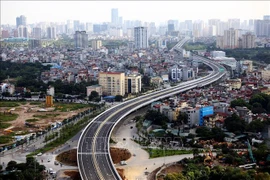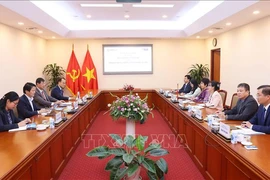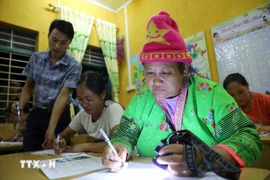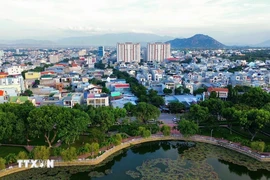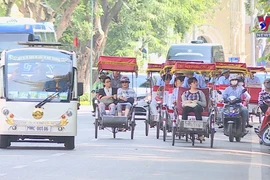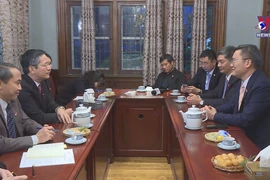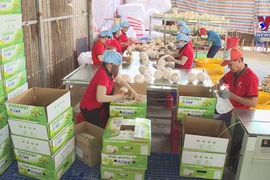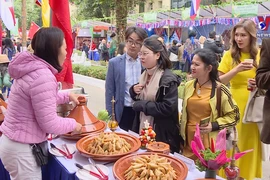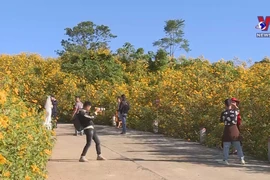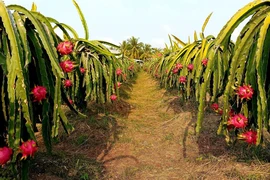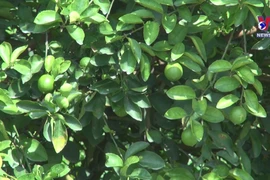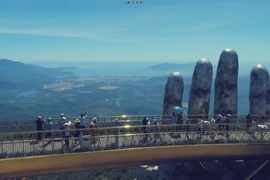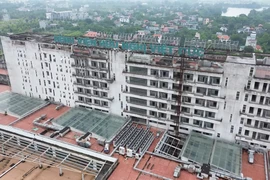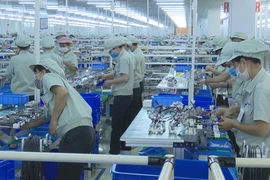Visiting ancient architecture, visitors often see gilded products, such as statues and horizontal lacquered boards. Many may know how gilded products are made, but few know that there’s a tiny material used for such sophisticated artworks, which can be only made in an outskirt village of Hanoi.
To create a smooth and shiny golden coat for ancient-looked products, gilding craftsmen need to overlay the products with super-thin gold leaves while the paintwork is still wet.
Those ultra-thin gold leaves are distinctive products made by artisans in Kiêu Kỵ commune, Gia Lâm district, Hanoi, which cannot be found elsewhere in Vietnam.
Kieu Ky villagers have made gold leaves since the 18th century to decorate courts, buildings and interiors of aristocrats, as well as Buddhist sanctuaries in the former Thang Long capital.
Ever since, the clanking sound of hammers hitting anvils from some 120 households producing gold, silver and zinc leaves, has vibrated through the small village.
Their tiny products reach every corner of the country.
 Le Van Vong was among the first two recognised artisans in Kieu Ky village. Despite being at his 70s, he is still dedicated to the village’s traditional craft.
Le Van Vong was among the first two recognised artisans in Kieu Ky village. Despite being at his 70s, he is still dedicated to the village’s traditional craft. Gold leave making is a sophisticated work which requires consummate skill and patience as artisans need to complete eight major steps with dozens of small tasks. Among which, the most decisive step determining the thinness and smoothness of gold leaves is making quỳ giống, square pieces of paper.
Thanks to their tough texture and smooth surface, the paper prevents gold leaves from being scattered when being beaten by a relatively big hammer.
After preparing quỳ giống, maces of gold are laminated into 2-meter segments then cut into nail-sized gold leaves. Layers of the paper are laid alternately with 500 gold sheets into stacks then beaten into wider and thinner sheets.
Afterward, gold leaves are cut into smaller pieces and beaten again. The process is repeated about five times until the final ultra-thin gold leaves are collected. The gold leaves are so thin and fragile that they can turn into dust with a gentle touch.
Leaving the small village, Kieu Ky’s humble gold leaves embark on a journey far and wide to buildings across the nation.-VNA


